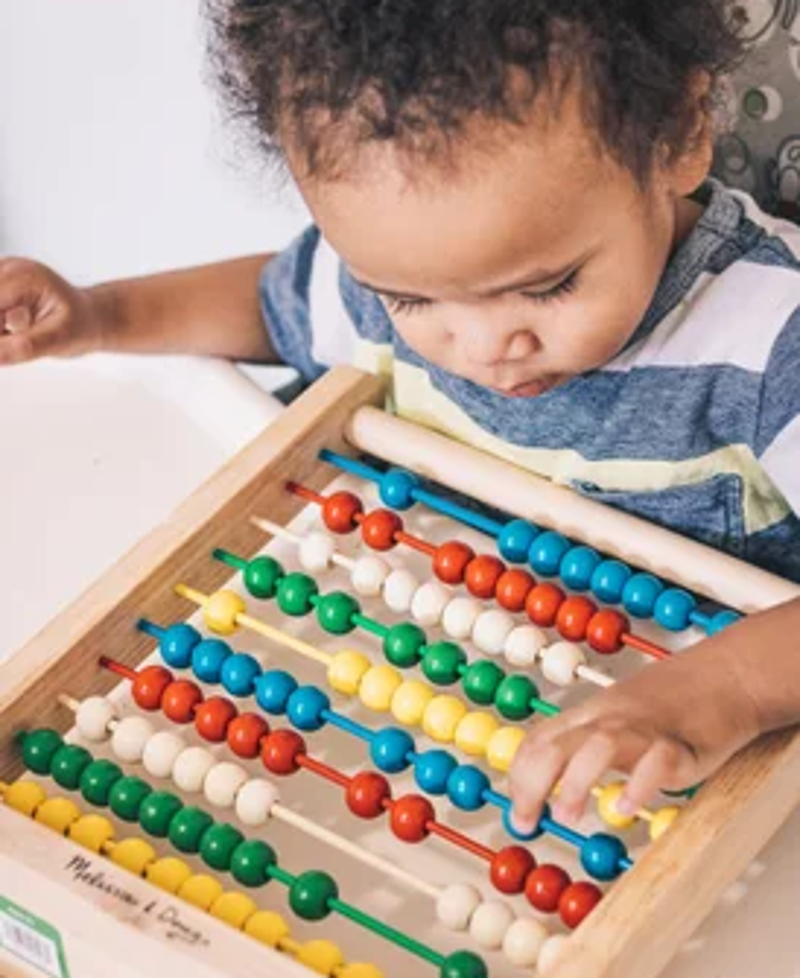
Dear parents! Today, we're going to explore the enchanting world of learning through play. As a mom, I've witnessed the pure joy and wonder that play brings to our little ones. But did you know that play isn't just about fun and games? It's a potent tool for stimulating brain development and encouraging learning in children. In this article, we'll uncover the benefits of play, its impact on brain growth, and how to create a safe and stimulating play environment for your child.
The Benefits of Play
Play isn't just a pastime; it's a vital aspect of a child's development. Here are some science-backed advantages of play:
-
Cognitive Growth: Play boosts problem-solving skills, creativity, and critical thinking. Children learn to make decisions and explore different solutions during play, which are vital for intellectual development.
-
Emotional Balance: Play helps children express their emotions safely and constructively. It teaches them to handle stress and develop emotional resilience.
3. Social Skills: Through play, kids learn to share, cooperate, and negotiate. These social abilities are essential for building positive relationships and navigating the social world.
4. Physical Development: Active play, like running, jumping, and climbing, promotes physical fitness, motor skills, and coordination.
5. Language Skills: Play often involves storytelling, which enhances language development. Children learn new words, expand their vocabulary, and develop communication skills.
Brain Development Through Play
Now, let's go through some points of brain development. Play is like a workout for the brain, and here's why:
-
Neuroplasticity: The brain is highly adaptable, especially during childhood. Play stimulates neuroplasticity, allowing the brain to form new neural connections and pathways. This, in turn, facilitates learning and memory.
-
Executive Function: Play enhances executive function skills, including attention, working memory, and self-control. These skills are crucial for academic success and overall life achievement.
-
Dopamine Release: When children play, their brains release dopamine, a neurotransmitter associated with pleasure and motivation. This reinforces positive behaviors and makes learning enjoyable.
Examples of Play-Based Learning
Now that we understand the importance of play, let's explore some examples of play-based learning activities:
-
Building Blocks: Playing with building blocks helps children develop spatial awareness, problem-solving skills, and creativity. Encourage your child to build structures and tell stories about their creations.
-
Pretend Play: Whether it's playing house, pirates, or doctors, pretend play fosters imagination and social skills. Join in on the fun and let your child's creativity flourish.
-
Outdoor Play: Nature provides an excellent playground for children. Outdoor play promotes physical fitness, sensory exploration, and a connection to the natural world.
-
Art and Craft: Get creative with art projects! Painting, drawing, and crafting improve fine motor skills and allow self-expression.
Creating a Safe Play Environment
Ensuring a safe play environment is paramount. Here are some tips:
-
Supervision: Always keep an eye on your child during play, especially for younger ones. It's also a wonderful opportunity for bonding!
-
Childproofing: Make sure your home is childproofed. Secure cabinets, cover electrical outlets and remove small choking hazards.
-
Age-Appropriate Toys: Choose toys and activities that suit your child's age and developmental stage. This helps prevent frustration and promotes success.
-
Outdoor Safety: When playing outdoors, provide appropriate safety gear, such as helmets and knee pads for biking or skating.
-
Balance Screen Time: While some digital games can be educational, limit screen time to a minimum to ensure a well-rounded play experience that includes physical and imaginative play.

Play is an amazing tool for nurturing brain development in children. It offers a range of benefits, from cognitive and emotional growth to the development of essential life skills. By providing a safe and stimulating play environment, we can give our children the best opportunities to learn, grow, and, most importantly, have fun along the way.
So, let's embrace play as a valuable and joyful part of our parenting journey. Watch with admiration as your child's imagination flourishes, as they explore new horizons, and as they grow into curious, confident, and capable individuals. Happy playing, and cherish these beautiful moments with your little ones!
Add comment
Comments